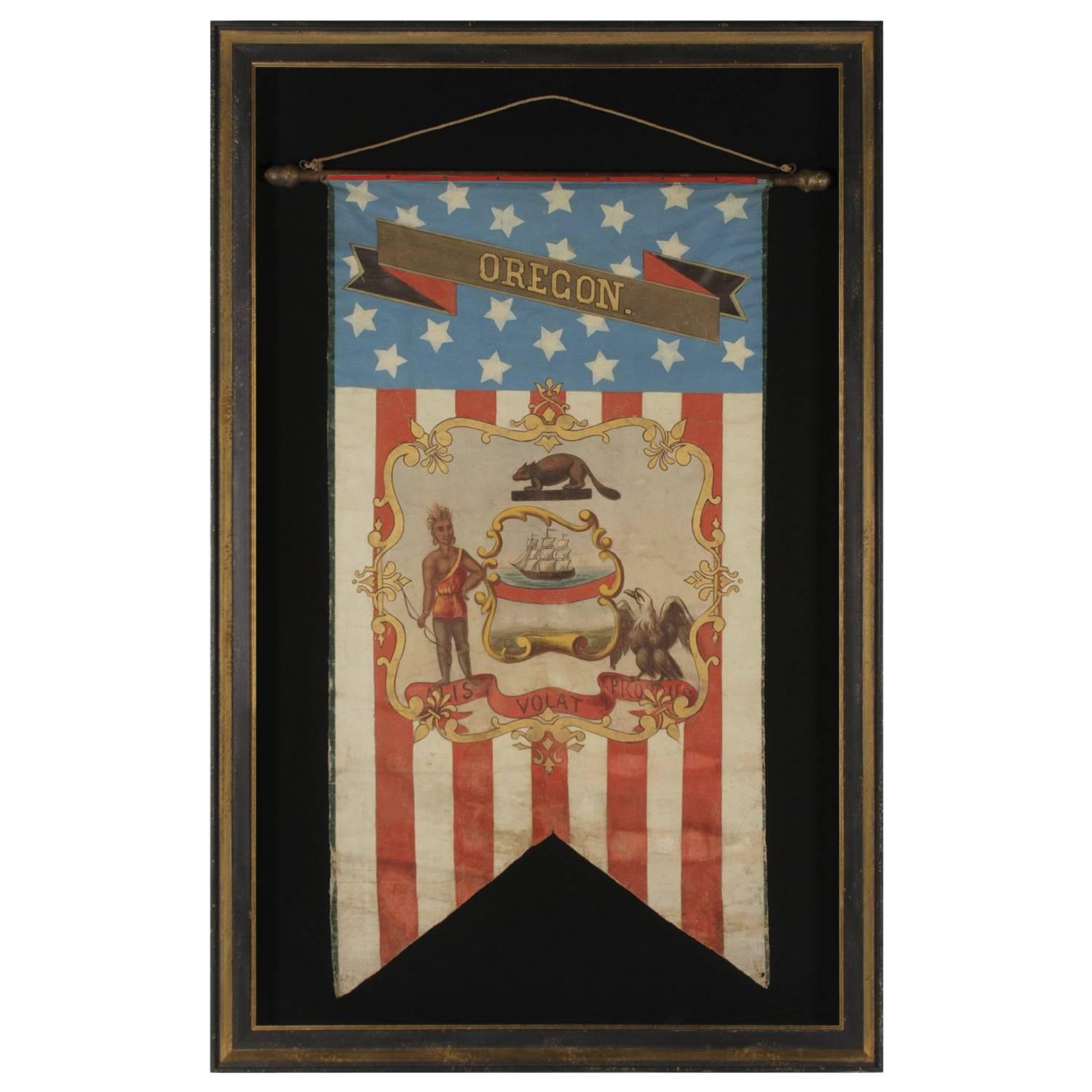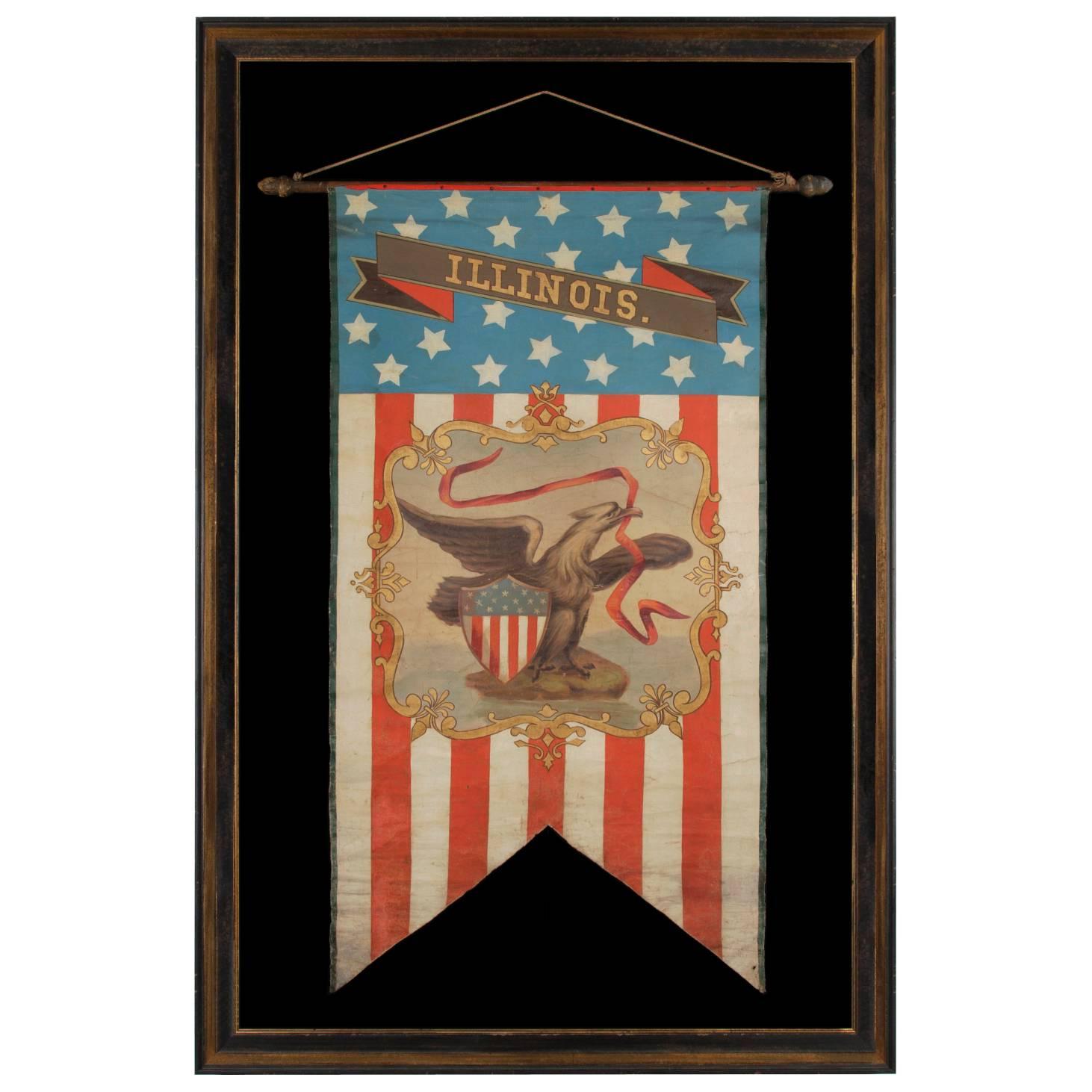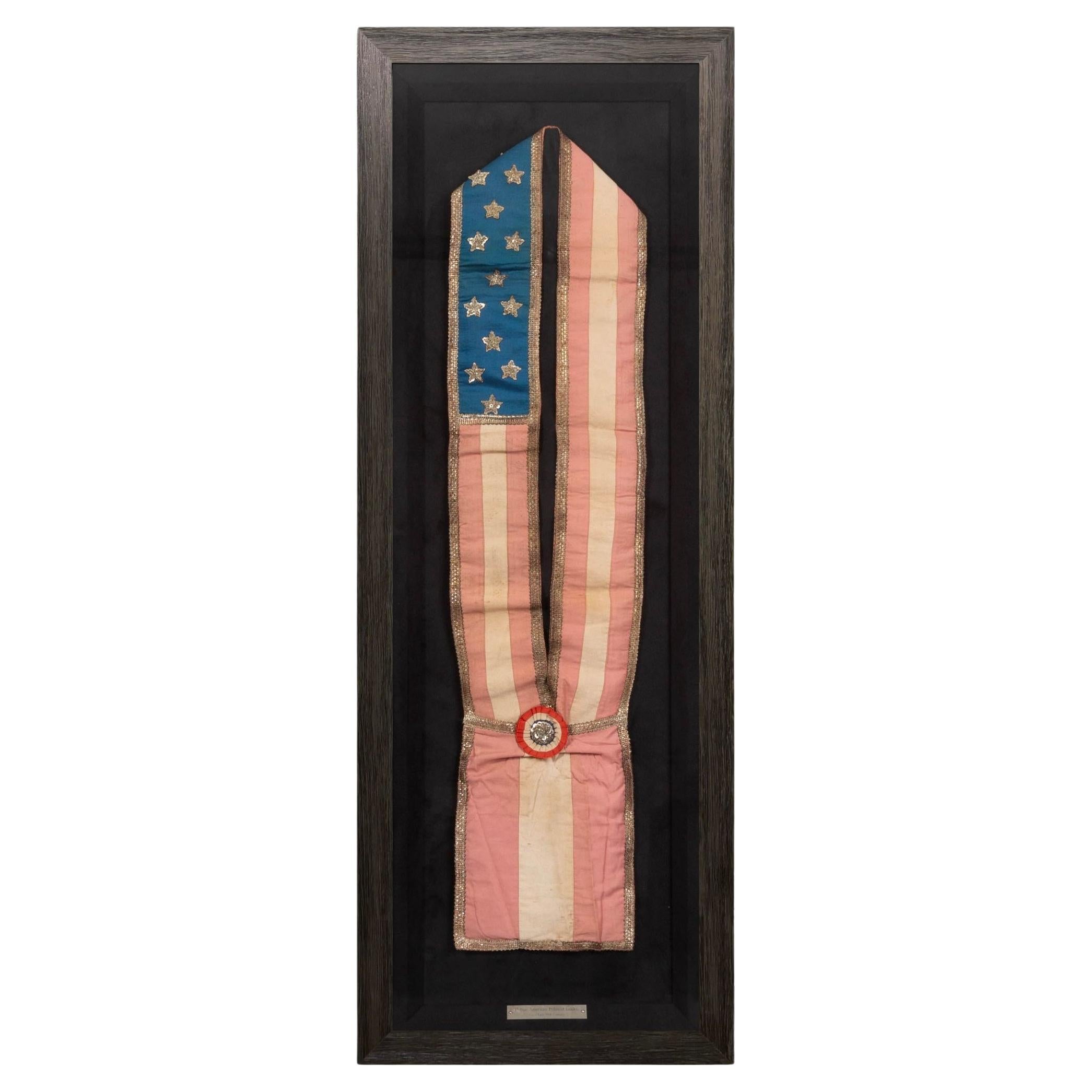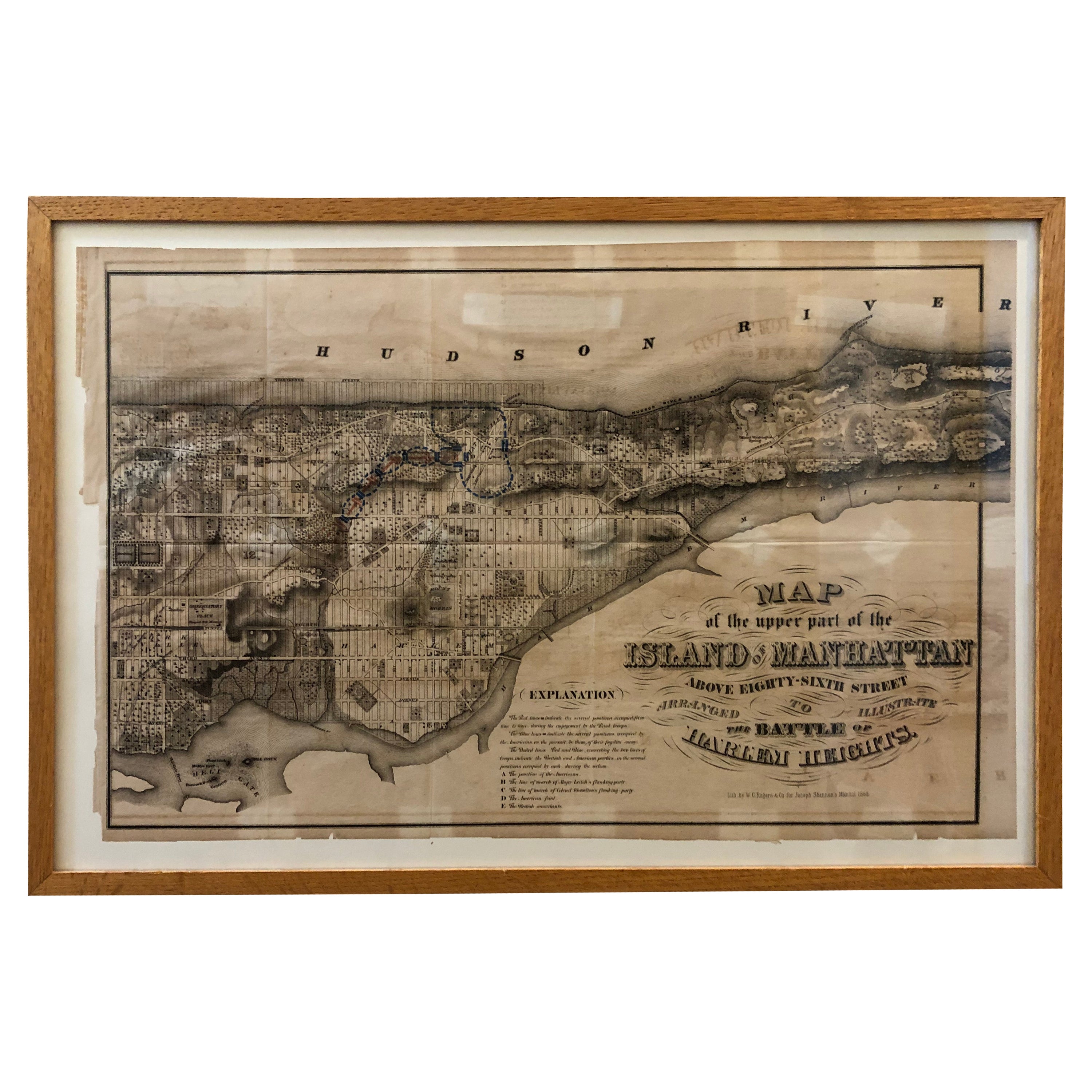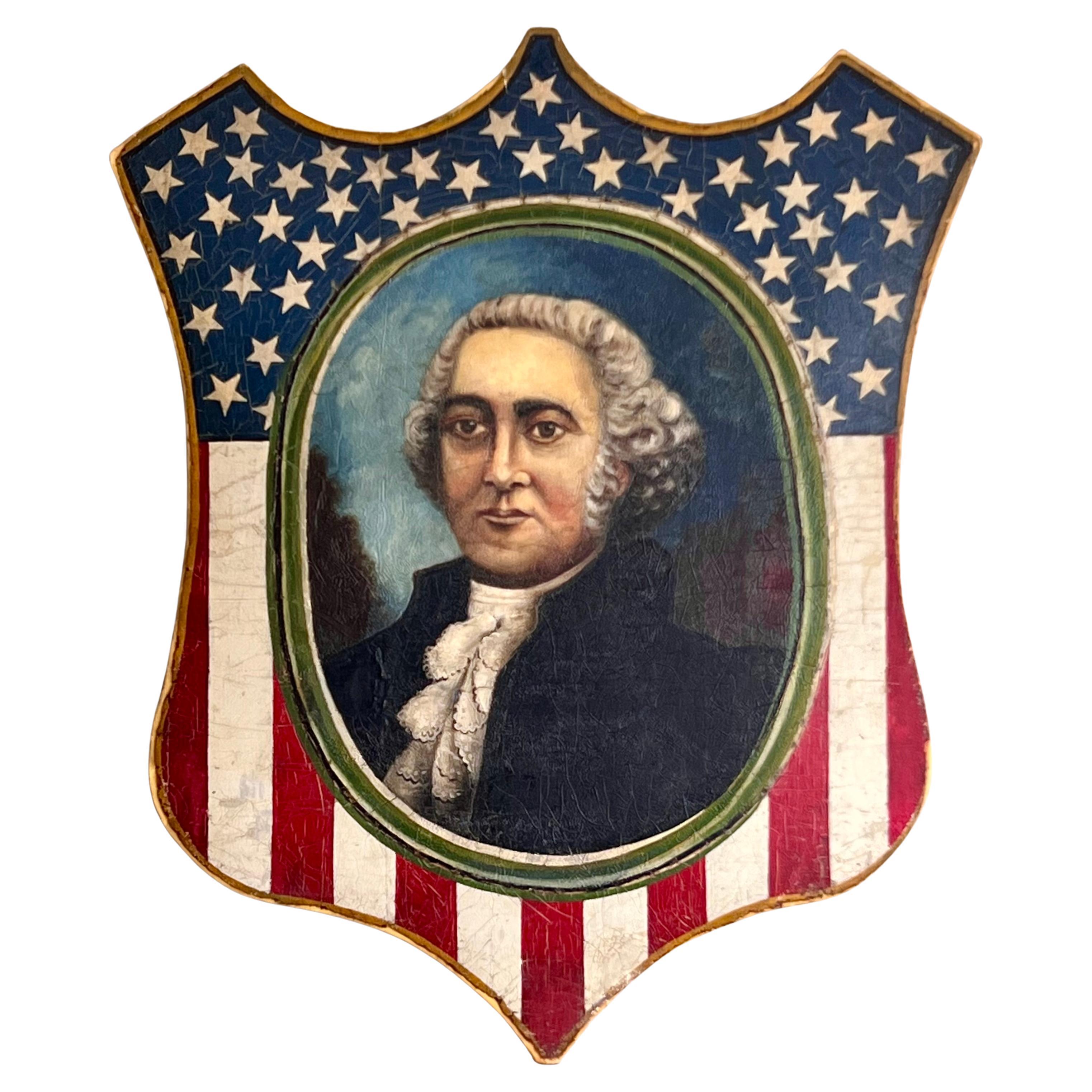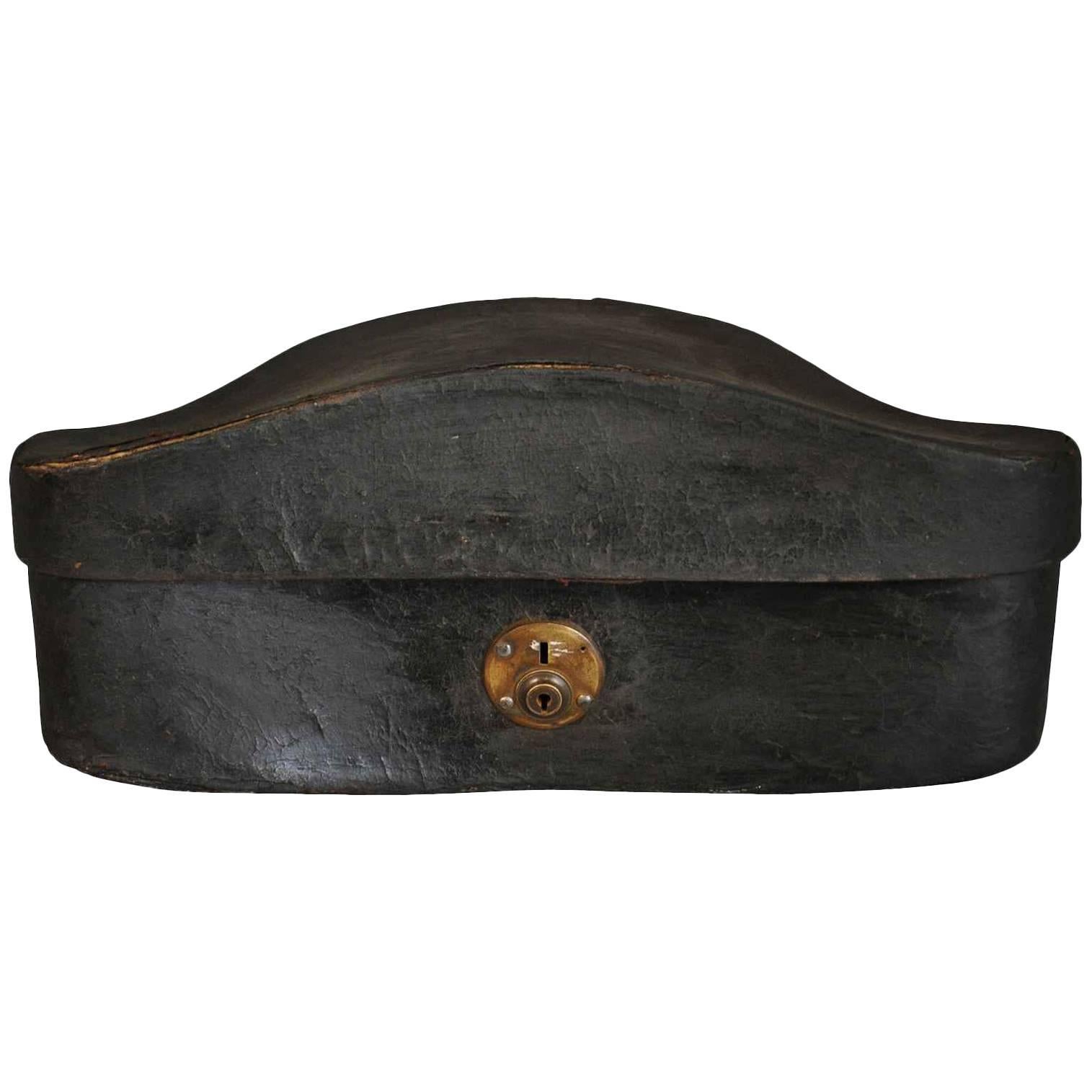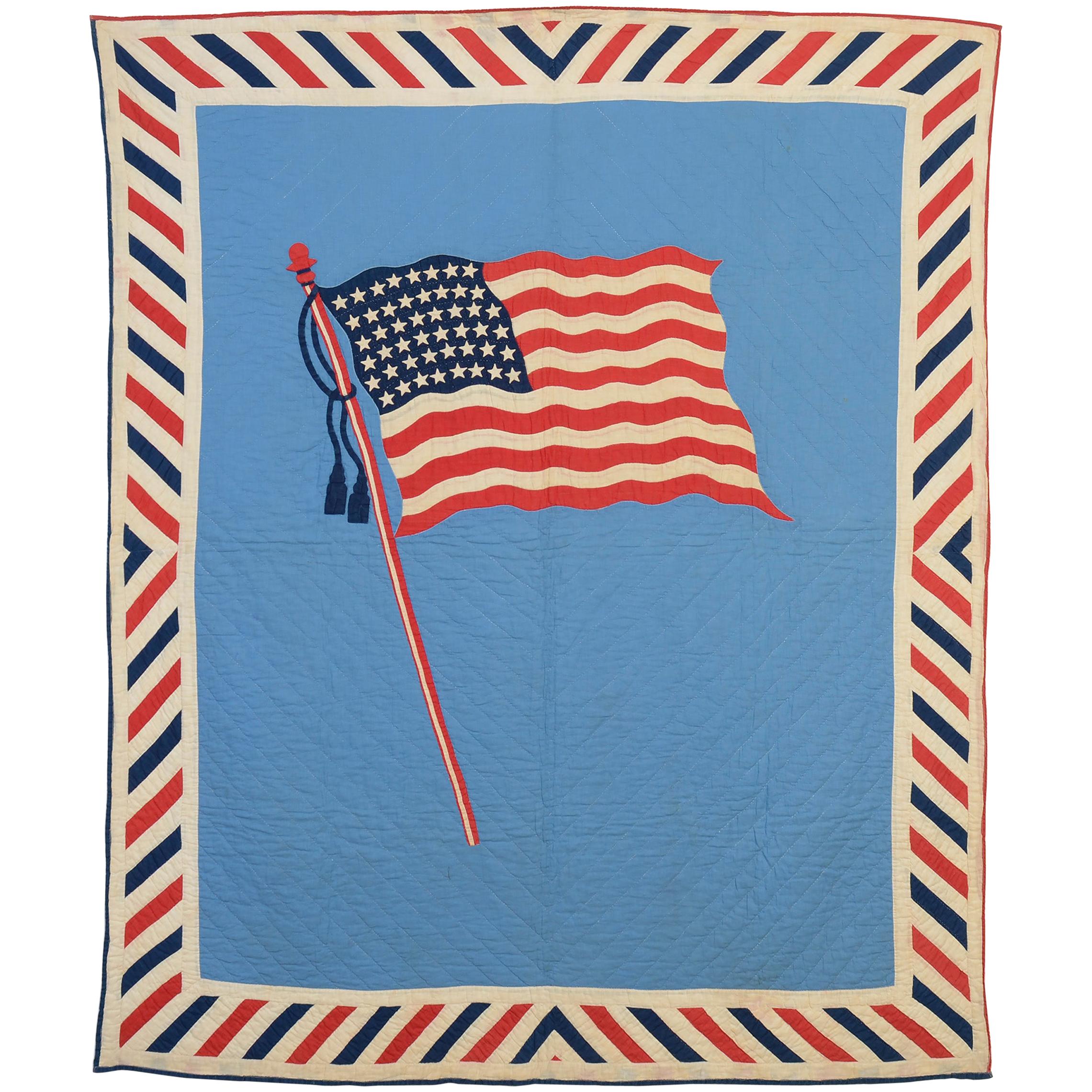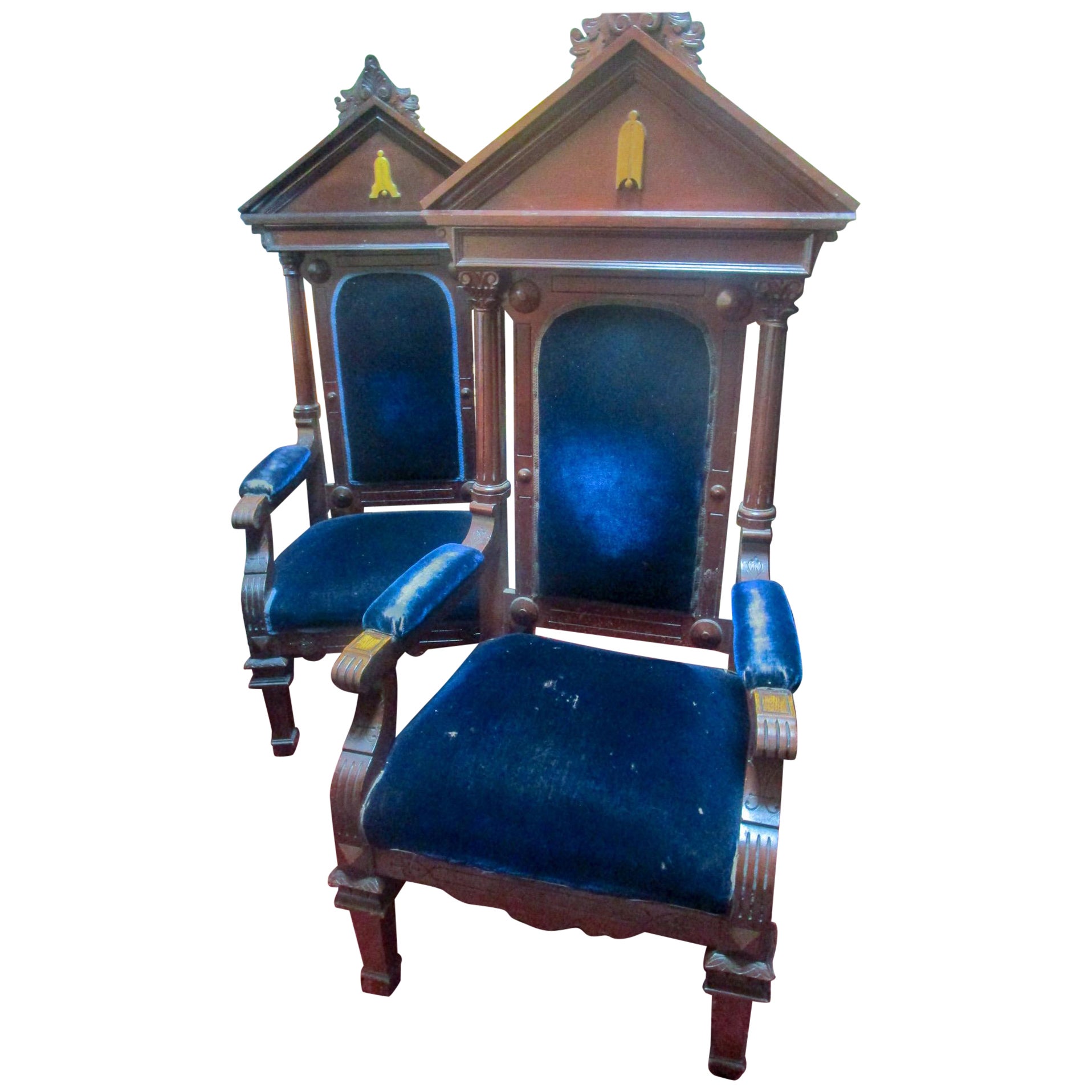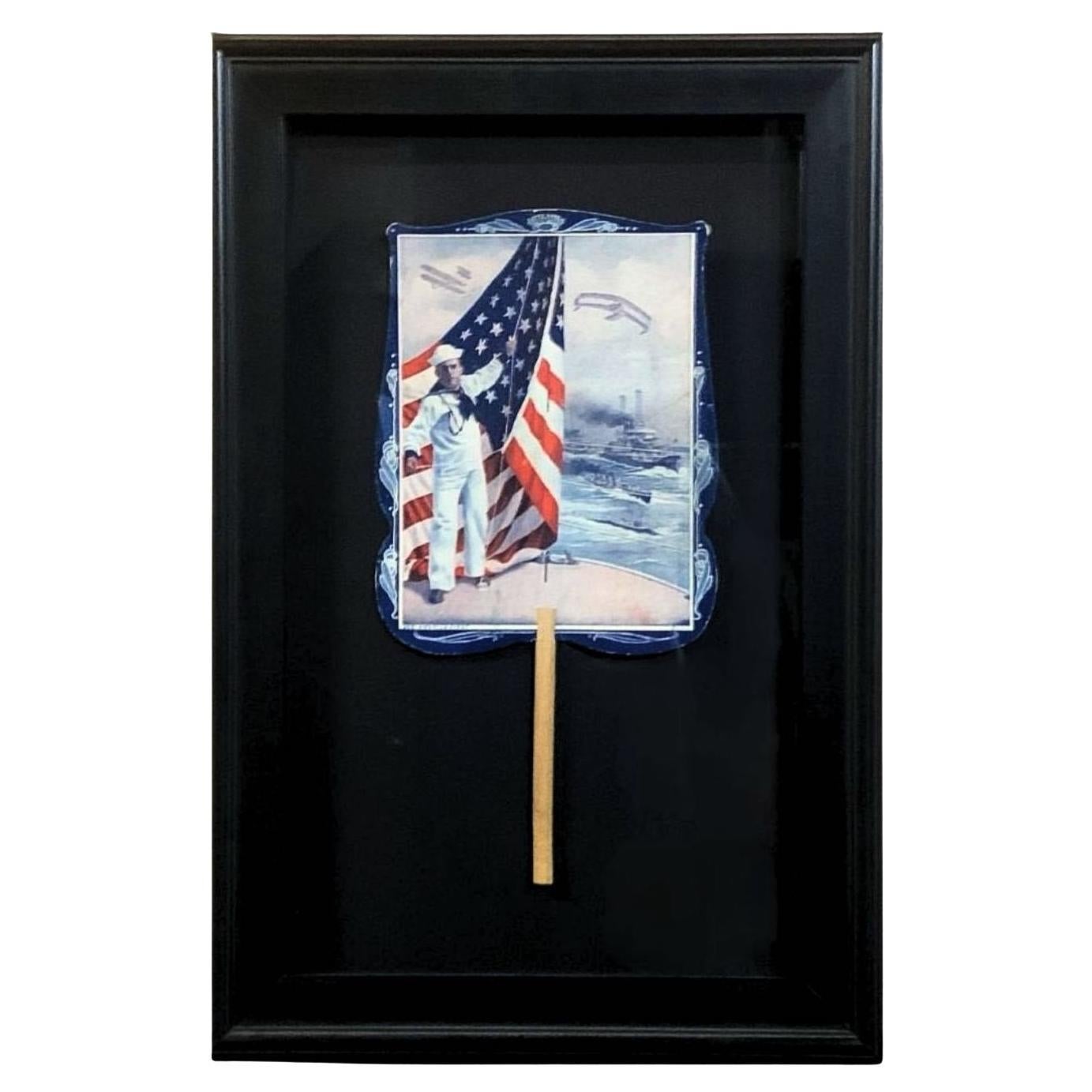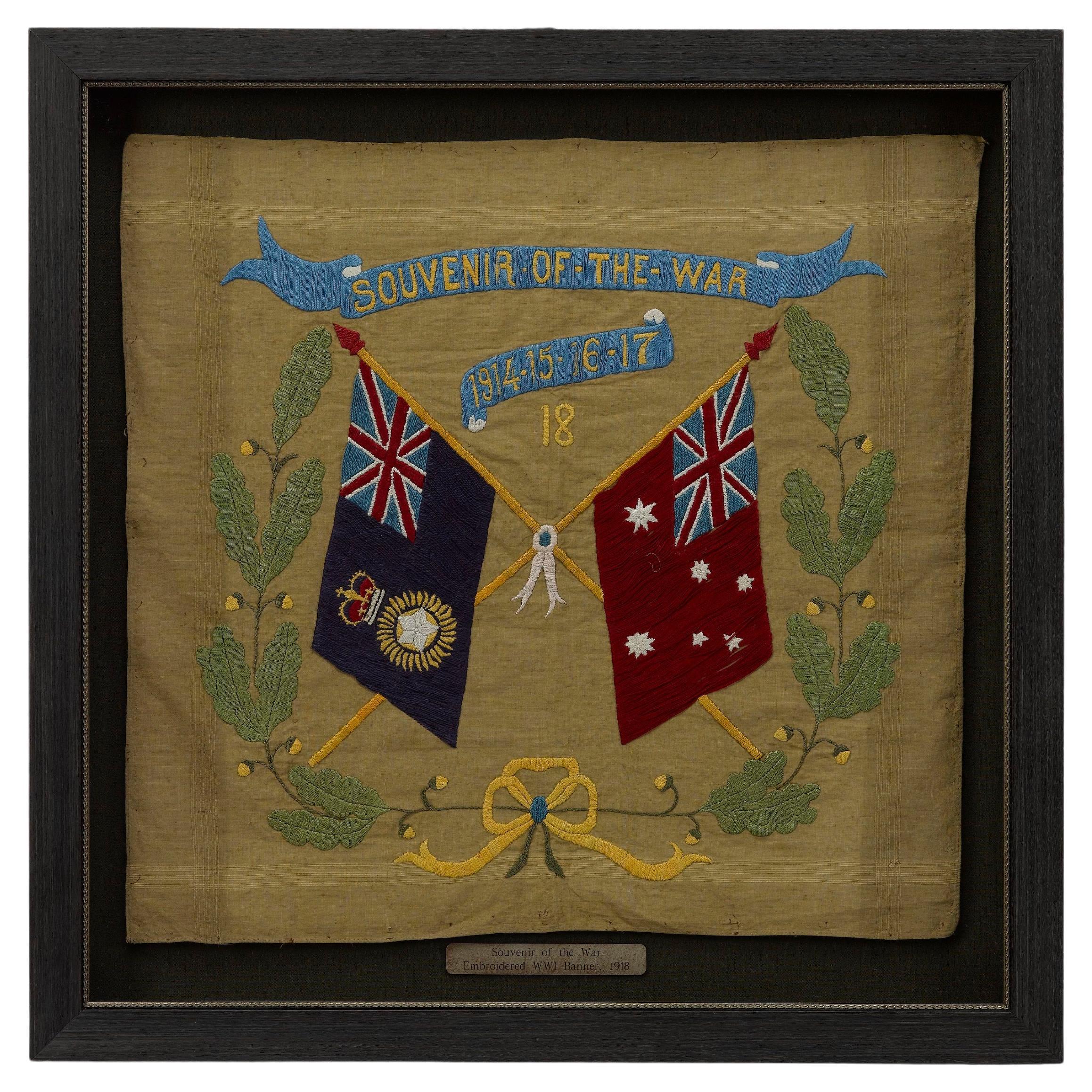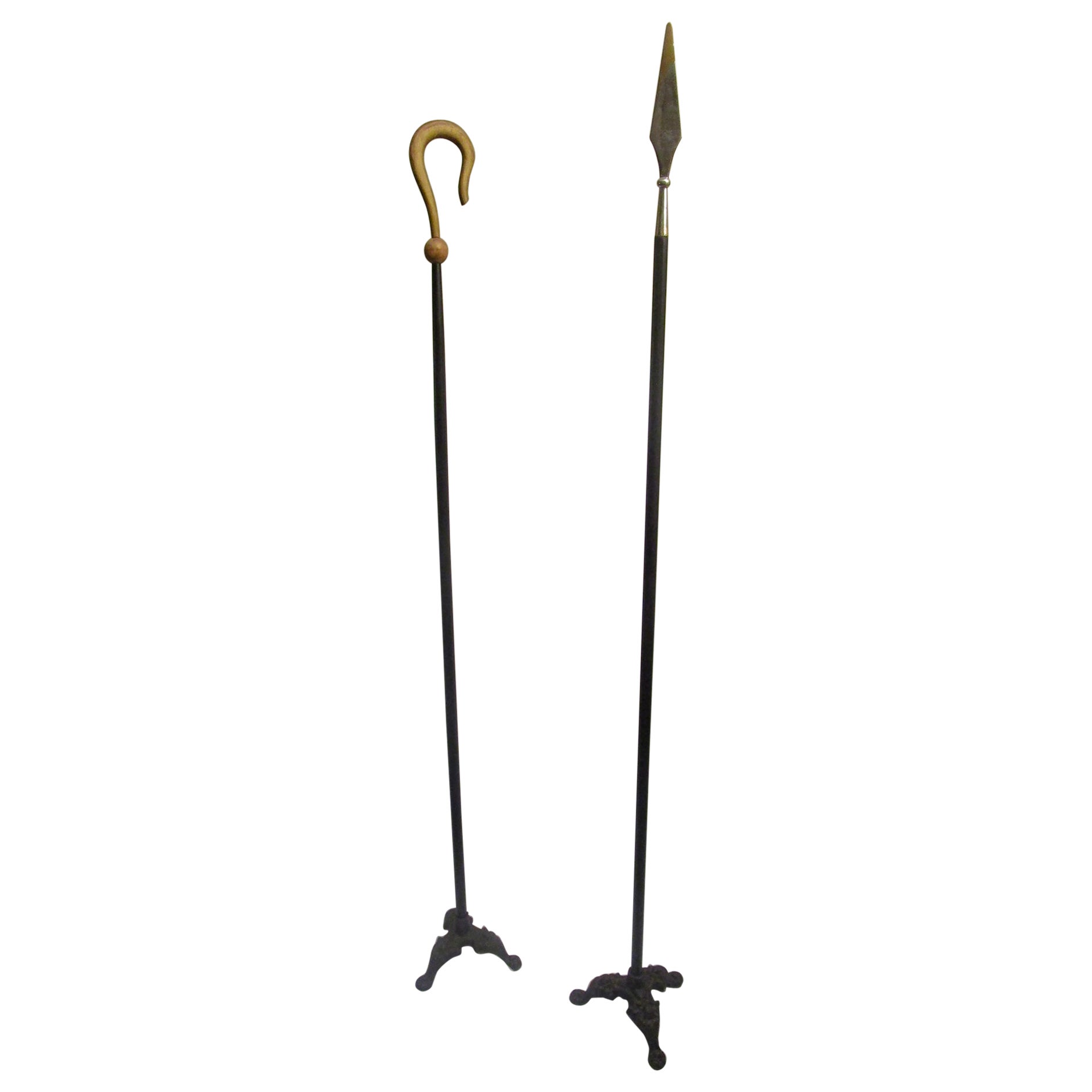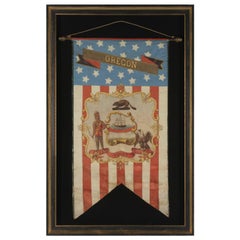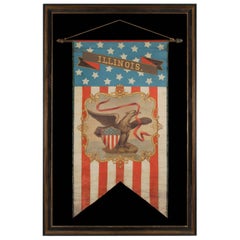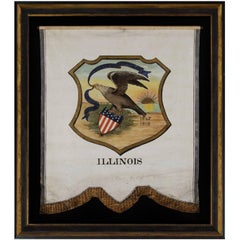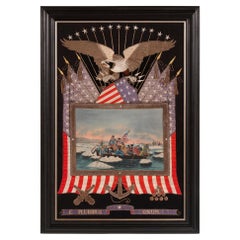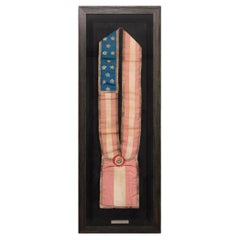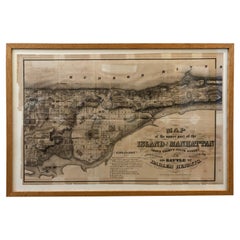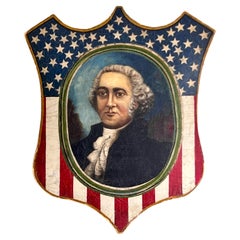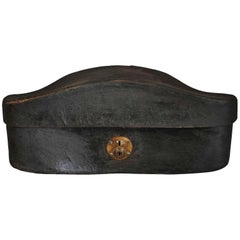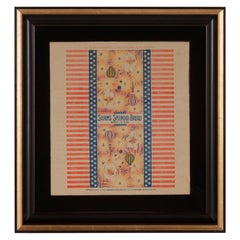
Patriotic 4th of July Themed Sturm's Splendid Bread Wrapper
View Similar Items
Want more images or videos?
Request additional images or videos from the seller
1 of 5
Patriotic 4th of July Themed Sturm's Splendid Bread Wrapper
$2,250List Price
About the Item
- Dimensions:Height: 29 in (73.66 cm)Width: 27 in (68.58 cm)Depth: 2.5 in (6.35 cm)
- Materials and Techniques:
- Place of Origin:
- Period:1910-1919
- Date of Manufacture:1915
- Condition:See Item Description.
- Seller Location:York County, PA
- Reference Number:Seller: pat-4881stDibs: LU849717958292
About the Seller
5.0
Recognized Seller
These prestigious sellers are industry leaders and represent the highest echelon for item quality and design.
Established in 1991
1stDibs seller since 2008
70 sales on 1stDibs
Typical response time: 1 to 2 days
Authenticity Guarantee
In the unlikely event there’s an issue with an item’s authenticity, contact us within 1 year for a full refund. DetailsMoney-Back Guarantee
If your item is not as described, is damaged in transit, or does not arrive, contact us within 7 days for a full refund. Details24-Hour Cancellation
You have a 24-hour grace period in which to reconsider your purchase, with no questions asked.Vetted Professional Sellers
Our world-class sellers must adhere to strict standards for service and quality, maintaining the integrity of our listings.Price-Match Guarantee
If you find that a seller listed the same item for a lower price elsewhere, we’ll match it.Trusted Global Delivery
Our best-in-class carrier network provides specialized shipping options worldwide, including custom delivery.More From This Seller
View AllHand-Painted Patriotic Banner with the Seal of the State of Oregon
Located in York County, PA
HAND-PAINTED PATRIOTIC BANNER WITH THE SEAL OF THE STATE OF OREGON AND GREAT FOLK QUALITIES, 1861-1876:
Swallowtail format, patriotic vertical banne...
Category
Antique Late 19th Century American Political and Patriotic Memorabilia
Materials
Canvas
Price Upon Request
Hand-Painted Patriotic Banner With The Seal of the State of Illinois
Located in York County, PA
HAND-PAINTED PATRIOTIC BANNER WITH THE SEAL OF THE STATE OF ILLINOIS AND GREAT FOLK QUALITIES PROBABLY MADE FOR THE 1868 DEMOCRAT NATIONAL CONVENTION...
Category
Antique 1860s North American Political and Patriotic Memorabilia
Materials
Canvas
Price Upon Request
Hand-Painted 19th Century Banner with the 1867 Proposed Seal of Illinois
Located in York County, PA
HAND-PAINTED 19TH CENTURY BANNER WITH AN 1867 VERSION OF THE SEAL OF THE STATE OF ILLINOIS, PROPOSED IN THAT YEAR BY THE SECRETARY OF STATE, BUT IN A VARIATION NEVER FORMALLY ADOPTED
Banner with the Illinois State Seal, in a rare variation of the design, never adopted. In 1867 Illinois Secretary of State Sharon Tyndale proposed that the phrases in the state motto be reversed. In the wake of the Civil War, (which ended in 1865,) Tyndale suggested that the verbiage be changed from "State Sovereignty--National Union" to "National Union--State Sovereignty,” which made sense given the recent secession of the Southern States, which placed their own interests first. Illinois' own Abraham Lincoln had worked hard to preserve national interests, echoed here in the altering of the language. Though Tyndale’s suggestion was rejected, he was nonetheless charged with creating a new design, which he did and was soon adopted. This displayed the dates of "1818," when Illinois became a state, and "1868," when the seal was officially changed. Interestingly enough, Tyndale did manage to send a message in the new version by turning the word “sovereignty” upside-down , with the surmised explanation that this fit accordingly with the orientation / position of the streamer.
The banner is beautifully hand-painted on muslin and retains its original staff. The shape is beautifully scalloped at the bottom edge, which is painted to look as if there is an applied fringe. Most of the elements are congruent with the 1868 version, but there are various differences. Set within a shield-shaped medallion—usually circular—is the expected eagle in a side view, spread wing pose with beak uplifted. The eagle is supposed to be perched upon a rock with one talon, while gripping a Federal shield in the other. Here there is no rock and both talons grip the shield, which displays 13 stars. Note the date of "1867" and Tyndale's preferred order of the wording on the billowing ribbon in the eagle's beak. The foreground of the official design is all grass. Here there are olive branches—a peacetime reference appropriate for a country recovering from war—on a grassy area, set upon a sandy shore before Lake Michigan, with a rising sun on the horizon.
Mounting: The banner was mounted and framed within our own conservation department, which is led by masters degree trained staff. We take great care in the mounting and presentation of flags and have preserved thousands of examples; more than anyone worldwide.
The background is 100% cotton twill, black in color. The mount was placed in a black-painted, hand-gilded and distressed Italian molding. A shadowbox was created to accommodate the staff. The glazing is U.V. protective plexiglass. Feel free to contact us for more details.
Banner - 49" x 56.5"
Frame - 67.75" x 59.25"
About Jeff R. Bridgman Antiques, Inc.:
As an advisor to top museums and collectors alike, Jeff Bridgman is the world's leading expert and source for antique American flags and political textiles...
Category
Antique 1860s American Political and Patriotic Memorabilia
Materials
Cotton
Price Upon Request
Elaborate Sailor Souvenir of Washington Crossing the Delaware, circa 1885-1912
Located in York County, PA
Elaborate sailor’s souvenir embroidery from the orient with a beautiful hand-painted image of Washington crossing the Delaware, surrounded by a large eagle, federal shield, crossed flags, a cannon, cannonballs, and anchor, circa 1885-1910:
Between roughly 1880 and 1915, American sailors visiting the orient could obtain beautiful needlework embroideries on shore, with patriotic American themes. These extraordinary works of art were acquired as mementos of a long voyage, often with the hope that they might be presented as gifts for loved ones and friends.
Using silk floss, elaborately embellished with both silver and gold metallic bullion thread...
Category
Antique Late 19th Century Asian Political and Patriotic Memorabilia
Materials
Silk
Colorado State Flag, Made of Silk, circa 1911-1920
Located in York County, PA
COLORADO STATE FLAG OF EXCEPTIONAL QUALITY, MADE OF SILK, CIRCA 1911-1920’s, EXTRAORDINARILY RARE IN THIS PERIOD AND THE EARLIEST EXAMPLE THAT I HAVE EVER ENCOUNTERED
Early state flags are few and far between. While I am asked for them constantly, most states did not actually have official flags until the 20th century.
On May 6th, 1911, Colorado became among the last to adopt a design. The project of doing so was spearheaded by the Denver Chapter of the Daughters of the American Revolution. The bill was introduced by Senator W.H. Sharply and adopted by the Eighteenth General Assembly. The artwork was the product of A.C. [Andrew Carlisle] Carson, President of the Ohio Society of Colorado. The meanings behind the elements in the design are as follows: The large letter "C" stands for Colorado and simultaneously for the Centennial State (Colorado entered the Union in 1876, the year in which our nation celebrated its 100th anniversary of independence), as well as the Columbine State (reflecting the state flower). The red color is included due to the fact that the word Colorado translates to scarlet or red in Spanish. The circle represents the sun, while the gold color symbolizes all-the-year sunshine, Colorado’s status as the greatest gold state, and one Columbine color. It was also included so that the Colorado state flag would have one more color than the U.S. flag. The color white reflects Colorado’s status as the greatest silver state, its eternal mountain snow, and one Columbine color. Lastly, the shade of Yale blue symbolizes all-the-year blue sky and one Columbine Color. Members of the D.A.R. were proud to note that this was also their color.
Made sometime between the initial year of the adoption of this design and the 1920’s, this particular flag is the earliest Colorado example that I have ever encountered. The blue and white bars, red “C,” and golden circle are a’’ made of silk taffeta. This was a costly fabric, reserved for the best material a flag-maker produced. The flag is constructed in the manner of a battle flag, to be carried on foot. Squarish in its overall profile, silk was the fabric of choice for flags employed in this function, due to the fact that it was light weight, and thus practical for hand-carrying, while simultaneously formal in appearance, appropriate for the sort of ceremonial use that military presentation often demands. The style of the hoist is also typical for field or parade use. Here the fabric was rolled over to form an open sleeve, through which a wooden staff could be inserted. The sleeve is lined on the interior with black cotton. Leather tabs, at the top and bottom, fit over metal posts on the staff, designed to accept them, to fix the flag in its proper position.
The bars were pieced and joined with lineal machine stitching. The hoist and fly ends were finished and hemmed by the same method. The devices are double-appliquéd (applied to both sides) with a machine buttonhole / blanket stitch. Though machines that produced buttonholes were, remarkably, available alongside the earliest standard machines, in the 1850’s and 60’s, the use of this sort of stitch in a running format, for appliqué work, remained highly unusual, even as late as the first half of the twentieth century, probably because it used a ton of thread when compared to the zigzag or satin stitch. It could be expected to appear more often in the hands of a maker of very fine flags, that employed embroidery machines and commissioned custom, fancy work of all sorts. Though unsigned—in no way uncommon in early examples, which were seldom signed—that is precisely the sort of firm that produced the Colorado flag...
Category
Early 20th Century American Political and Patriotic Memorabilia
Materials
Silk
Price Upon Request
1840 Campaign Kerchief of William Henry Harrison on Horseback
Located in York County, PA
1840 campaign kerchief featuring an image of William Henry Harrison on horseback in military garb, one of the first known campaign textiles in e...
Category
Antique Mid-19th Century American Political and Patriotic Memorabilia
Materials
Cotton
Price Upon Request
You May Also Like
Antique 13-Star Patriotic Sash by Louis E. Stilz & Bros., Late 19th Century
Located in Colorado Springs, CO
Presented is an original patriotic sash from the late 19th century, featuring 13 stars against a bright blue field. This sash features appliqued silver stars on a blue canton, red an...
Category
Antique Late 19th Century American Historical Memorabilia
Materials
Cotton
1868 Map of the Upper Part of the Island of Manhattan Above 86th Street
By Wm. Rogers Mfg. Co.
Located in San Francisco, CA
This wonderful piece of New York City history is over 150 years old. It depicts 86th street and above. It was lithographed by WC Rogers and company. It was made to show what was the Battle of Harlem during the Revolutionary war...
Category
Antique 1860s American American Colonial Maps
Materials
Paper
19th Century Patriotic Shield Painting Featuring John Adams
Located in Wiscasset, ME
Folk art patriotic shield painting of John Adams, dating to around 1876 and of a large size measuring 41" x 34.5". It is an oil on canvas laid down to boards. There is writing on the back of the boards, but I cannot make out what it says. There is another similar piece to this that features another signer of the constitution in the Smithsonian collection. This piece came from a collection in Portsmouth...
Category
Antique 19th Century American Folk Art Paintings
Materials
Paint
Sensational Early 19th Century Chapeau De Gendarme Hat Box
Located in Round Top, TX
A sensational early 19th century French Chapeau De Gendarme - officer's hat box in leather. Such a nostalgic shape!! A great accent piece for any b...
Category
Antique Early 19th Century French Arms, Armor and Weapons
Materials
Leather
Patriotic Flag Quilt Old Glory
Located in Darnestown, MD
Nothing could be more of the moment than this patriotic flag quilt depicting Old Glory.
It was most likely made either for the admission of Arizona into st...
Category
Early 20th Century American Folk Art Quilts
Materials
Cotton
Navy Sailor Patriotic Printed Paddle Fan, Early 20th Century
Located in Colorado Springs, CO
Presented is a patriotic printed paddle fan, with an image of a Navy sailor. The sailor is depicted on the back of a large boat, standing in front of a large, waving American flag. I...
Category
Early 20th Century American Political and Patriotic Memorabilia
Materials
Wood, Paper
